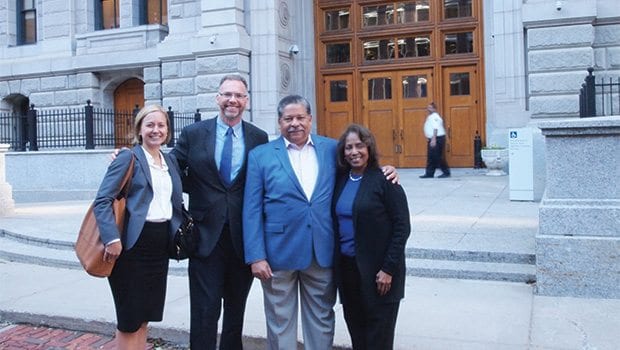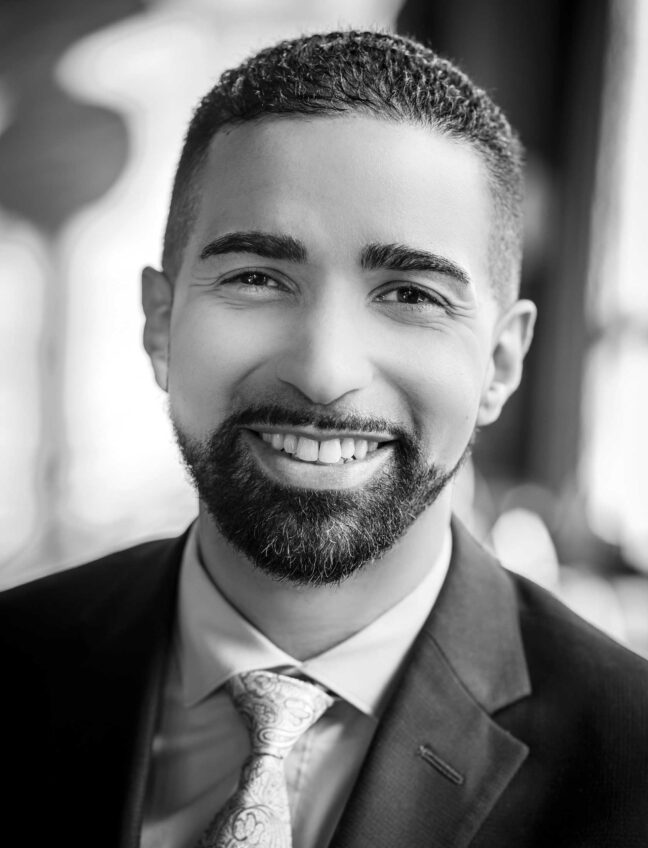
Lawyers argued in Suffolk County Courthouse this week over a case with the potential to undo the results of last year’s heated battle over the cap on charter schools.
Millions of dollars had poured into campaigns on both sides of the Question 2 ballot measure, with the lift-the-cap side bolstered further by hefty donations, totaling more than $15 million, from an organization deemed to have illegally kept secret its contributors. Ultimately, 62 percent of residents voted to keep the cap — but the ballot measure was not the only bid to lift the limits on Massachusetts’ charter schools.
Before the 2016 ballot measure came Doe v. Peyser, a court case centered around five Boston children who failed to receive placements at charter schools in 2015 and instead received placement in district public schools that the state ranks as Level 3 or Level 4. These complainants say that their schools are poor quality, that charter schools would provide better education and that the cap on charter schools restricts available seats to the point of denying them access to such schools.
The court dismissed the case last fall, weeks before the Question 2 vote. On Monday, attorneys representing the plaintiffs returned to court, arguing that the court had erred in its dismissal. They said that while state voters had rejected a charter cap lift, that vote’s result should not stand because it denies some children their constitutional right to equal protection and an adequate public education. Meanwhile, seven students who are of color, have disabilities and are English Language Learners, and who attend traditional public schools in Boston, intervened in the case to defend keeping the charter cap. These students argue that lifting the cap would damage the financial well-being of their schools for the sake of schools that do less to serve their demographics, and so would harm their own educations.
The defense attorneys assert as well that the plaintiffs make too big a logical leap when claiming that adjusting the charter cap is the clear and necessary solution to allegedly poor educational conditions in district public schools.
Robert Toone of the Attorney General’s Office spoke for defendants on Monday. Melissa Allison, of Anderson & Kreiger LLP, spoke on behalf of intervening students, accompanied by Matt Cregor of the Lawyers’ Committee For Civil Rights and Economic Justice. Amicus briefs supporting the charter cap were submitted by the Massachusetts Teachers Association and jointly from the Boston Branch of the NAACP, Boston Education Justice Alliance and the New England Area Conference of the NAACP.
Representing the plaintiffs on Monday was Kevin Martin of Goodwin Proctor LLP. An amicus brief on behalf of these students was submitted jointly by Pioneer Institute, the Black Alliance for Educational Options and Cheryl Brown Henderson, whose father was the named plaintiff in the case Brown v. Board of Education.
Plaintiffs asked the court to reconsider the dismissed case and launch a discovery process, investigating the arguments’ merits further. While the case focuses on complaints of Boston children, its ruling would affect school districts statewide.
Arguments
Plaintiffs previously argued that because one of the state’s caps on charter schools has been reached in Boston, this policy restricts the likelihood of student’s placement in an educational setting they believe superior to some of Boston’s traditional public schools. Student complainants were assigned to schools the state Department of Elementary and Secondary Education ranks as Level 3 and 4 — marking them as among the lowest 20 percent of schools, compared to other schools of the same grade span statewide. As such, plaintiffs say, they are blocked from better offerings in the form of charter schools and their right to adequate education is violated.
They argue for complete removal of the cap or forraising of the cap so as to increase chances of entry through charter lotteries or remove the need for the lottery system entirely. They noted that there still would be some limits on charters, given that the state education department approves new charter schools.
Defendants previously countered that the charter cap protects many students by ensuring financial viability of traditional public schools. Commonwealth charter schools are approved by the state, not the local community that has to help fund them, which makes it difficult for a district to have control over its finances. District schools also tend to serve higher-need students than many charter schools do, meaning that those students would experience reduced support for the schools that do serve them, to advantage schools that do not, intervenors say.
“[The plaintiffs’] claim would require imposing a remedy that would injure other students at those schools,” said attorney Allison.
Defense attorneys argued further that there is no guarantee that any potential added charter school will be of high quality or that the children necessarily will gain access under a lifted cap. One amicus brief states that there are fewer Level 4 or 5 BPS public schools than there are Boston charter schools on probation or operating under conditions imposed by DESE.
Furthermore, defendants assert that should a condition contribute to poor public school offerings, it is not clear that the solution to that poor condition is to promote a specific kind of alternate school. Judges on Monday probed plaintiffs, questioning why their argument would not apply to expanding METCO or another alternative.
“They’re just trying to use the education clause claim as a device to get to their chosen remedy,” said defending attorney Toone.
Defendants previously had said that Horace Mann charter schools, which are not capped, could provide similar environments to that which the complainants seek, without adjusting the system. However, plaintiffs have since narrowed their request to increasing availability of Commonwealth charter schools. Commonwealth charter schools differ from Horace Mann schools in part in that they do not need local school committee approval to expand and are not restricted to hiring unionized teachers, and in part because there has been a greater push to expand Commonwealth charters than there has been to expand Horace Mann schools.
Plaintiff attorney Martin introduced a new line of argument on Monday, stating that it is illogical for the state to let Horace Mann schools expand but limit Commonwealth charters, as he said both are charter schools that could draw money and students from traditional public schools.
“It’s OK for money to flow out of the district for Horace Mann schools as long as the teachers are unionized?” Martin said. “That’s an arbitrary and irrational response.”
Speaking after the hearing, Allison said the judges’ decision will not likely come before fall 2018.






